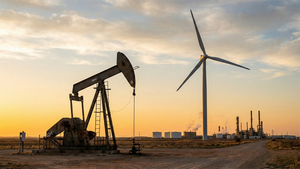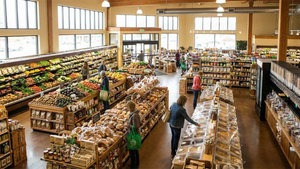Smartphones enabled the boom in digital payments, which were boosted during the pandemic. However, the development of the payments ecosystem is still in the making. JD Duarte, an entrepreneur and innovation expert from Costa Rica, explains the trends that will be protagonists in the coming years.
Electronic payments are transforming the financial services industry. This is based on the innovations implemented by traditional banks and the emergence of FinTechs and new payment service providers, which offer technology-based solutions to solve specific financial needs of consumers.
The use of cash is still the most chosen medium and accelerated electronic payments during the pandemic. It promises to continue scaling in the future, because it makes life easier for users, allowing them to make frictionless payments, anytime and anywhere, and keep track of their expenses.
As a counterpart, businesses, SMEs and organizations have the opportunity to reduce their operating costs. In addition, they can lead a more agile and automated management, and become more competitive.
In that sense, a recent study by Visa indicates that 82% of the small businesses surveyed said that they plan to accept some type of digital payment in 2022. In addition, 73% consider that accepting new forms of payment is fundamental for the growth of their business.
Says Duarte, “Undoubtedly, mobile payments skyrocketed in 2021 for sending money, payments in physical stores and eCommerce. It also boosted the consolidation of virtual wallets and QR Codes, making them an option highly valued by consumers for their ease of use and agility.”
On the one hand, contactless payments are taking off. As the name implies, it is a technology that allows you to pay just by bringing the card to the sales terminal. This type of payment allows you to make payments with a simple touch, either with the credit card, debit card or even with a cell phone.
They are implemented in transportation systems, restaurants and commerce in general. In the US, for example, 9 out of 10 transactions in 2021 were Contactless, which marks that it is a real trend, at least, in the first world.
Voice activation in online transactions is implemented through artificial intelligence, and customers can give instructions of the transaction to an application, through chatbots. In a sense, Google has been working on a development-oriented to these types of solutions for some time. However, it must be said that, on a general level, it is still quite premature.
Nowadays, it is enough to have a cell phone to make a purchase with QR. FinTechs and the birth of a few dozen virtual wallets in the region facilitated their adoption, presenting themselves as a practical, dynamic and simple option.
“In a context of the pandemic,” adds Duarte, “with the added value that physical contact between people is avoided. According to a Mastercard survey last year, 66% of respondents in Latin America expect to use payment technologies such as QR codes this year.”
The innovation of the ecosystem does not stop here and in the next decade, the world will witness an acceleration of changes, driven by biometric technology, artificial intelligence, virtual reality and blockchain, which will have a dominant role for the development of new payment alternatives.
Invisible payments will be part of consumers' daily lives, allowing them to make purchases with their fingerprint, through facial recognition or with the use of their voice, without using money, cards or any other device.
The embedded finance market will be a generator of great changes and business by allowing any company, whether or not it is a financial institution, to offer banking services and products through its digital channels.
In this line, solutions such as Buy Now, Pay Later (BNPL), which offers the possibility of dividing a purchase into installments, will allow more and better services to be provided to users.
Another trend that will be key in the reconfiguration of the payments ecosystem is the advance of big techs, such as Google, Facebook, Apple, Amazon or Alibaba, in the provision of financial services.
Looking ahead, the financial industry has the enormous opportunity to grow its payments ecosystem (which has not yet reached its full potential) by including new players and developing innovative solutions through technology.
About Jose Daniel Duarte
JD Duarte is originally from Heredia, Costa Rica. He has been an entrepreneur and business owner for more than 20 years, and divides his time between his existing operations and researching new possibilities in which to invest. When he's not dedicating time to his businesses, he spends time with his supporting wife and two children.
— WebWireID293700 —






